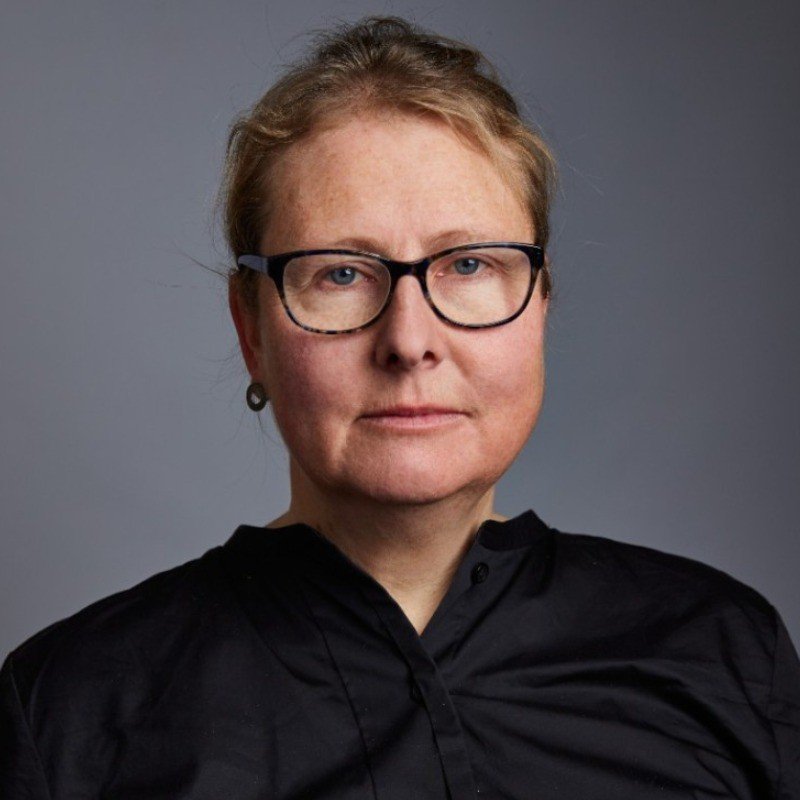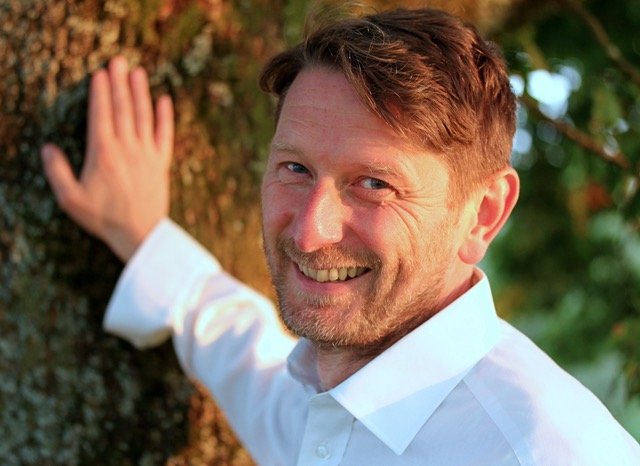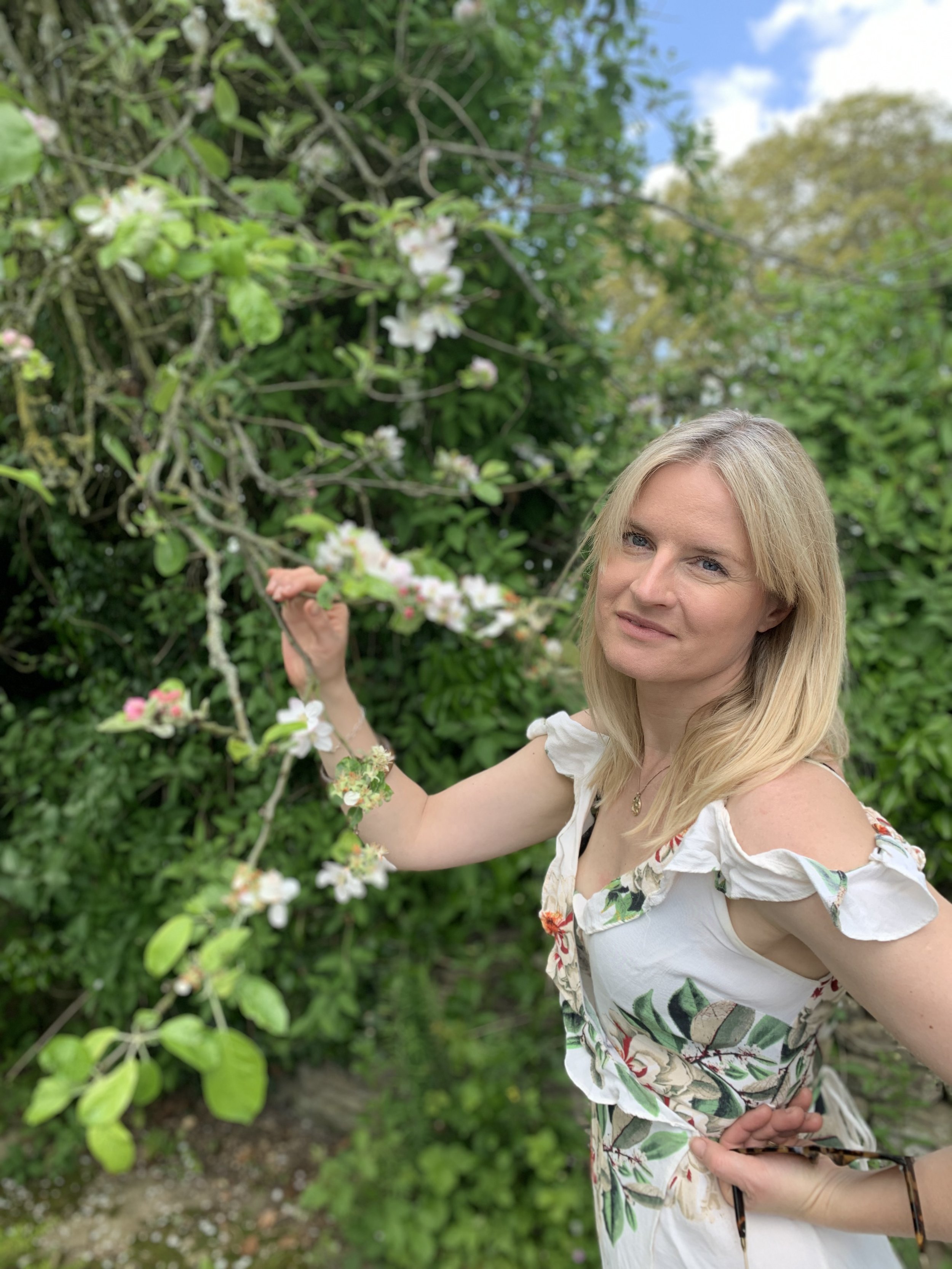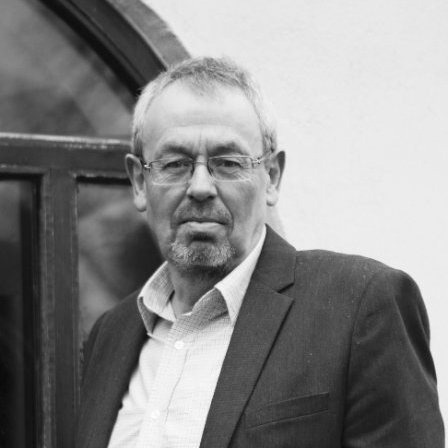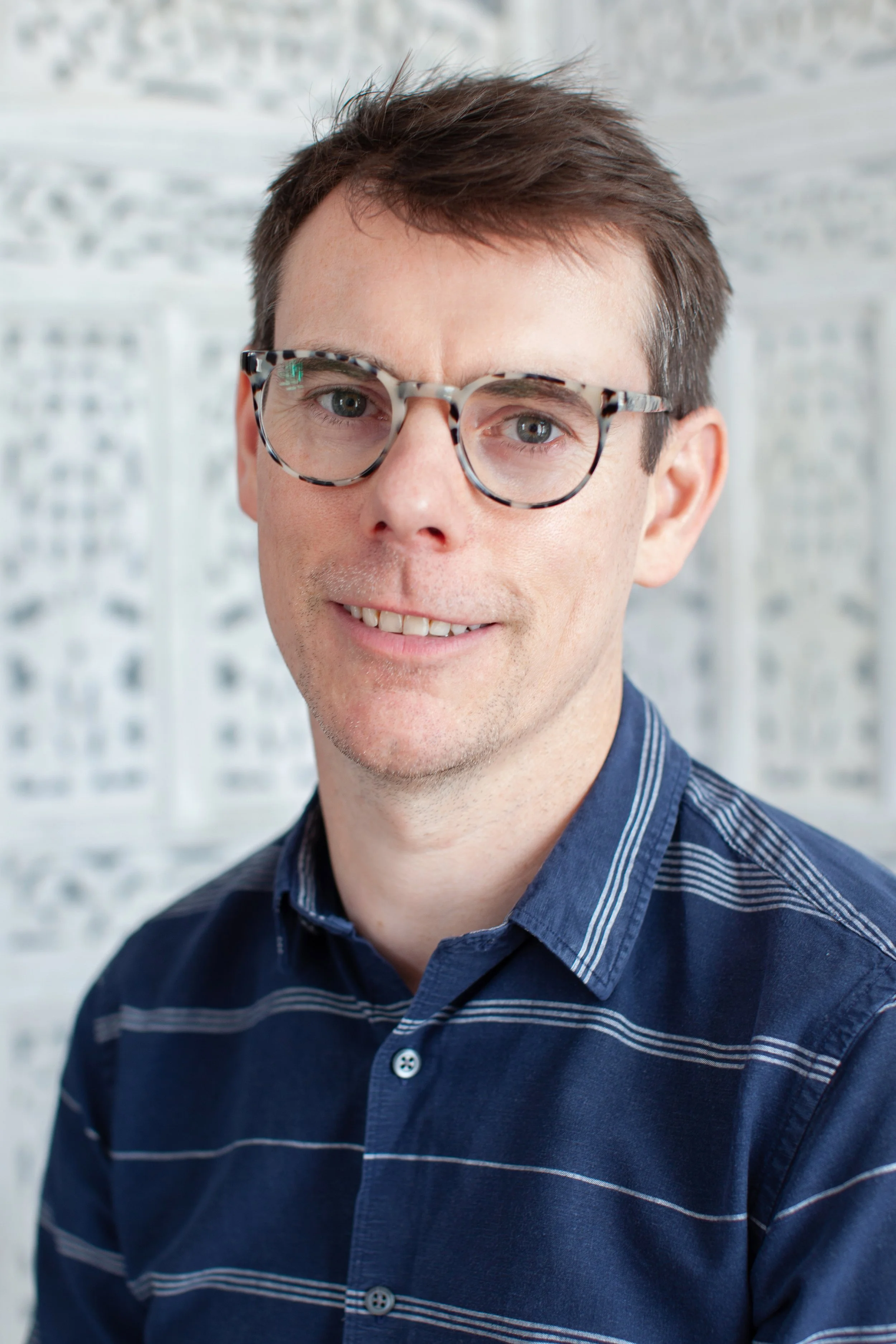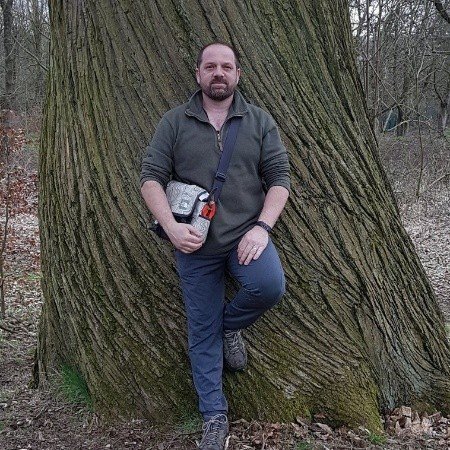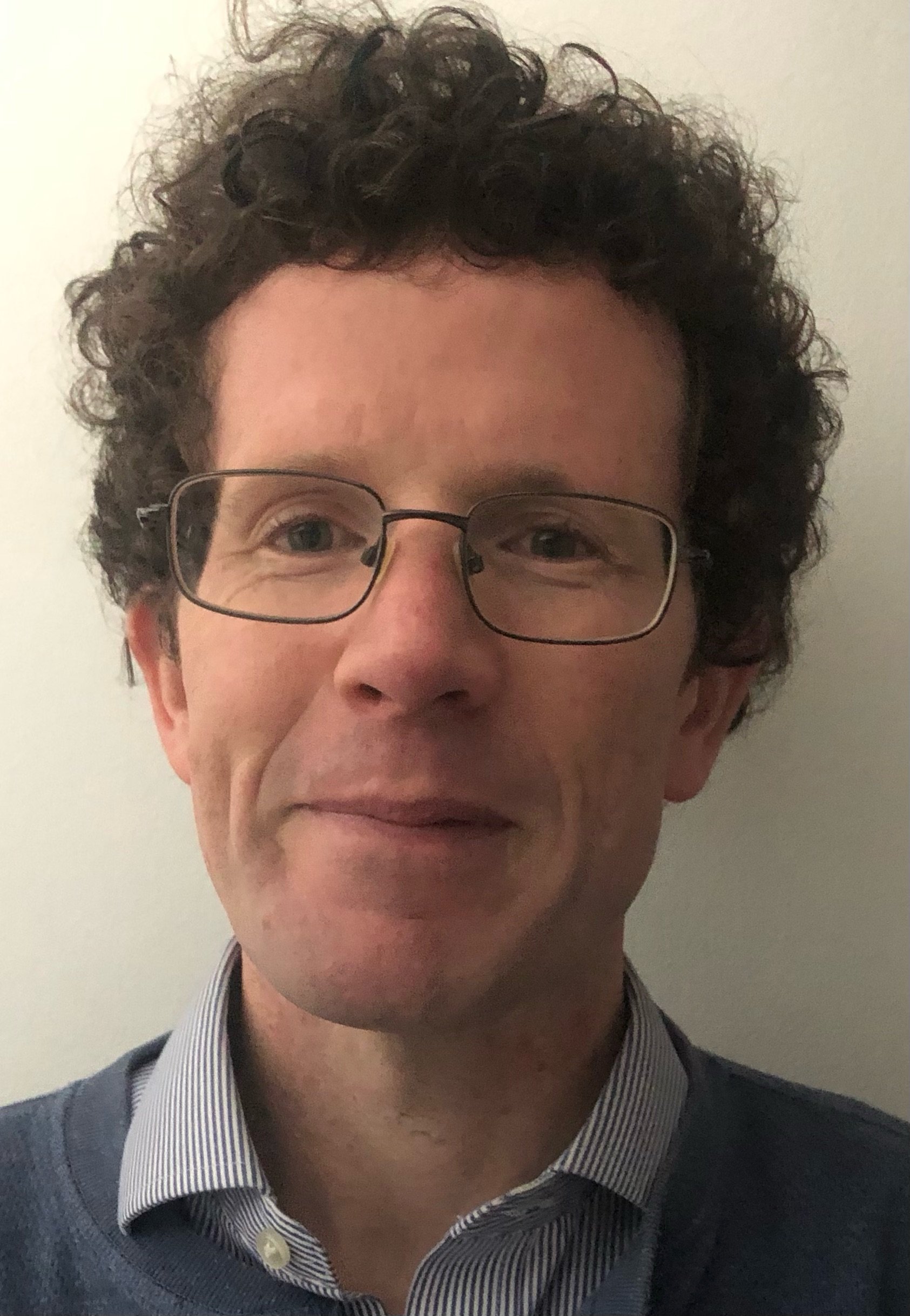If you have landed on this page searching for the 2025 Biophilic Design Conference, click here to view this year’s page!
Speaker Profiles
Keynote Speaker
Keynote speaker
Oliver Heath, BA (Hons), Dip Arch (UCL)
Oliver Heath is founder and director of Oliver Heath Design, who are recognised thought leaders in health & wellbeing in the built environment. They are researchers, designers, and advocates for the creation of healthy flourishing spaces in the built environment, benefiting both people and planet.
Having spent 15 years working for TV channels such as BBC, ITV and Channel 4, published 4 books, 8 white papers, online courses and presenting over 500 RIBA certified CPDs on Biophilic Design, Oliver has vast experience in knowledge creation and presentation.
Design clients benefitting from his company’s nature first approach include Apple, Bloomberg, The BRE, Accor, Interface and the John Lewis Partnership.
Oliver is a passionate advocate of sustainable design and has acted as a spokesperson for the likes of the UK’s Department for Energy Security and Net Zero (DESNZ), the Energy Saving Trust (EST) and the Waste and Resources Action Programme (WRAP). www.oliverheathdesign.com
[photo credit Richard Hanson]
Why is the Conference important to you:
“I’m delighted to be presenting a key note speech at the Biophilic Design Conference, particularly at time when the natural world that we are so reliant on is under such threat. With a growing awareness of the need for deeper nature connections across all aspects of our lives and building sectors, there is so much to learn from our peers, be that evidence, practice, case studies and approaches. Join us to engage, contribute, and learn.”
Conference Speakers
Alphabetic order
Amanda Bond
Amanda is leading ourForest Walks, our Shinrin-Yoku experiences at lunchtime.
Amanda is an Ecotherapist with a MA in a Buddhist oriented, mindfulness-based depth psychotherapy, a certified practitioner in a somatic bodywork. These deep listening practices are the foundation of her current work that supports people in engaging and shaping new relationships with nature and the more-than-human world.
In 2014, an experience in South Island, NZ, inspired her to reconnect with the plant realms, which has led to some interesting adventures and an herbal apprenticeship in plant spirit medicine, as well as a Diploma in Herbology with the Royal Botanic Garden Edinburgh.
Amanda is increasingly involved in place-making and community engagement, supporting creative projects involving nature for the wellbeing of people and planet
Instagram @wildedgewalker
https://www.linkedin.com/in/amanda-bond-0035
https://www.wildedgewalker.earth
“I have developed my own reciprocal relationship with nature over time, needing resources to counter the far-reaching impact of CPTSD. Environmental factors affect me deeply, as I am hypersensitive and notice things others do not. A particular form of neurodivergence may enable me to do so - living and working in environments that trigger me to shut down has taught me that people need elements of nature around them to resource and be able to function within society. We are on the threshold of the ‘great turning’ as Joanna Macy calls it. I believe that Biophilic Design is imperative now to help us transform the way we live and work, in right relationship with the earth.”
Andrew Waugh
Andrew is a Founding Director of Waugh Thistleton Architects, committed to creating beautiful, environmentally conscious buildings. With over a decade of expertise in mass timber and low carbon construction, he is globally recognized as a leader in sustainable building practices. Andrew lectures, teaches, and lobbies worldwide to accelerate the green transition in the construction economy, emphasizing the urgent need to mitigate the climate crisis.
His innovative designs have garnered numerous awards, including the RIBA President's Award for Research and a Stirling Prize nomination in 2018. In 2023, Waugh Thistleton's Black & White building, a fully engineered mass timber office block in London, received both an RIBA London and National Award.
The practice engages in research and design projects throughout Europe and North America, including a four-year EU Horizon research project on circular construction. As a founding member of Architects Declare, Andrew promotes the use of biogenic materials and low carbon alternatives. He works closely with research institutions and advises on government policy, establishing Waugh Thistleton as a leader in sustainable architecture.
https://www.instagram.com/waughthistletonarchitects/
“I’m delighted to see biophilic design becoming an increasingly important position in architecture. In context of our climate crisis and the contribution of the construction industry to environmental devastation, its important that we emphasise the truly holistic advantages of bio-based design, as a benefit to both people and planet. Working in timber for the last two decades, we have witnessed first-hand the incredible impact that using bio-based materials has had on the occupants of our buildings”
Chloe Bullock
Chloe Bullock is the founder of Materialise Interiors, Brighton-based B Corp certified interior design company. Named as PETA’s Compassionate Designer in their Vegan Homeware Awards. Chloe’s book on Sustainable Interior Design, commissioned by the Royal Institute of British Architects (RIBA) launched Spring 2024. The book covers the various approaches to a sustainable interior design, with the goal of inspiring the interior design industry to work in a more conscious way. She is an active Sustainability Committee member of the British Institute of Interior Design (BIID) and a founder of Interior Design Declares. With over 30 years experience of the design industry and most of that time in sustainability, Chloe works for clients, architects and interior designers
materialiseinteriors.com instagram.com/materialiseint https://www.linkedin.com/in/chloebullock/
“At this time of disconnection and biodiversity + climate collapse - there is nothing more important in everyone’s work than to connect to nature - the impact our work has upon it (good and bad) and the opportunities to improve experiences for users of the spaces we design. Therefore, to gather at this conference to collaborate, encourage each other and share knowledge is so important to our industry.”
Clare Bowman
Clare Bowman is an Architect Academic, Sustainability Leader and Co-founder of RCZM. Well-regarded for her innovative work in biophilic and sustainable educational spaces, she has collaborated extensively on research-based projects that integrate natural elements into school designs. Her work with Putney High School’s “Biophilic Classroom” initiative was awarded RHS Chelsea Gold medal in 2021.
Clare actively shares insights on biophilic design in educational settings, highlighting the importance of integrating green infrastructure, improving air quality, and creating adaptable spaces that support both mental and physical health. Her work emphasizes the impact of sustainable design on educational outcomes, enabling schools to create nurturing nature-based environments.
Contribution to publications include ‘Designing Places for People’ and ‘Intelligent Building and Infrastructure with social Values Third Edition’ publications by Professor Derek Clements Croome and “The Economics of Biophilic Design, 2nd Edition” by Terrapin, Bright Green.
https://www.linkedin.com/in/clare-bowman-796a12bb/
Instagram @clare_bowman_rczm_architects
“It is a privilege to be part of this exceptional and immersive conference along side Suzie Longstaff Principal at London Park Schools, and we are looking forward to sharing our latest Plants for Schools Guide which includes viable sustainable sources”.
Crawford Wright
Head of Architecture and Design, Department for Education.
Crawford leads a multi-disciplinary team responsible for the design and construction standards for all state schools and colleges in England. He is the departments technical lead on responding to climate change and developed the UK’s first biophilic school.
David Mooney
Chief Executive Officer for London Wildlife Trust. He started his career as a secondary school science teacher. During his time at the Trust, David has been a leader in the urban nature conservation sector, developing significant partnerships across the public, private and charities sectors.
David led the development and delivery of the Trust’s large-scale natural heritage and habitat restoration projects across London, including Woodberry Wetlands and Walthamstow Wetlands- the largest wetlands nature reserve ever to be established in London.
He is also responsible for developing the Trust’s strategic ecology approach in securing biodiversity net gain and urban greening through the design development and planning of large-scale regeneration projects across the London and the South-East.
Professor Emeritus Derek Clements-Croome
Professor Clements-Croome has a rich background in building design and contracting before his academic career. He established a BSc in Building Environmental Engineering at Loughborough University in 1970 and launched an MSc in Intelligent Buildings at Reading University in 1996. With experience at the University of Bath (1978-1988), he founded the CIBSE Intelligent Buildings Group in 2006 and co-founded the Natural Ventilation Group in 1992.
He was a member of the UK Green Building Council team who wrote the Report Health and Wellbeing in Homes ---July 2016 and the World Green Council Report on Health and Wellbeing in Offices 2014. He contributed to the BCO Report 2018 on Wellness Matters: the Guide to Specification 2019 and reports on Ventilation for COVID 19 in 2021 and also with PLP Architecture The Use of Wearables in the Office in 2021.
As a commissioner on air quality and biodiversity in London, he has contributed to various reports on health, wellbeing, and sustainability. His book, Designing Buildings for People, was published in 2020, and he is currently working on a new edition of Intelligent Buildings, was published this Autumn 2024.
“This Conference brings together a body of knowledge based on the science and practice of Biophilic Design for the betterment of living with an enhanced quality of life at a time when so much world turmoil spoils so many lives with restless streaks of fear.”
Duncan Craig
Technical Policy Lead, Department for Education.
Duncan is the Technical Policy Lead for the Department for Education’s Design Team. Duncan has worked across multiple government departments and is passionate about delivering user focused outcomes. Duncan is currently working on a number of projects to understand how we can meet school and college users’ needs, whilst delivering sustainability, access to nature and the long-term resilience of the education estate.
Eleanor Young
Editor of the RIBA Journal
Eleanor is interested in the good-everyday and the extraordinary in architecture. As editor she writes across the magazine and website and leads on editorial development prioritising climate action and the RIBA Journal's focus on design in the making.
@Eleanor Young
@RIBAJ
“What if we didn’t have to search out a calm green space in our cities but it was all around us? Hopefully this conference will show it is within our grasp”
Professor Geoffrey Proffitt
Geoff Proffitt is an Emeritus Professor of Applied Ecology at Swansea University; after a rich career in conservation and habitat creation and restoration, he is now working to promote and develop the biophilic approach to urban development. He works closely with planners, developers and fund-raisers in Wales and abroad to build innovative and pioneering buildings and urban landscapes, to retrofit existing ones, leading the way towards carbon neutral or carbon positive environments, improved biodiversity and towards a circular economy.
A wetlands specialist, with the Wildfowl and Wetlands Trust in Martin Mere, Slimbridge and Llanelli, he designed and created major habitat restoration projects, including lakes, saline lagoons, marshlands, and visitor centres. In 1999 he raised the funding for the landmark Millennium Wetlands, a pioneering restoration and conservation scheme in Llanelli of 80 hectares, one of the largest wetland restoration projects in Europe on the Burry Estuary RAMSAR Site.
He is currently working to create new and renovated biophilic buildings in Wales, including commercial, domestic, hospitals and tourist attractions. He works with international investors to find funding for visionary biophilic and environmental projects, including with the Clinton Global Initiative.
He has broadcast extensively on radio and television.
“As a country with post-industrial landscapes and buildings, Wales is uniquely well-placed to renew and renovate its urban and rural settlements with crucial attention to sustainable living, habitat creation, and the wellbeing of its citizens. In truth, if we are to fully respond to and have an impact upon, the mounting challenges that are now clearly in focus the world over, urban development and redevelopment will have to take a lead.
The Wales Health and Wellbeing of Future Generations Act, the UN Sustainable Development Goals, the UK State of the Nation Biodiversity Report and the existential climate emergency, require that architects, designers, engineers, ecologists and scientists combine their skills to respond to these complex and immediate challenges.”
Gijs Bruggink
Gijs Bruggink is general manager and biophilia/regeneration expert at Dutch eco-architecture firm ORGA. With a background as historian and Living Future Accredited professional he weaves knowledge with like minded folks across the globe and writes about topics concerning biophilic and regenerative architecture.
“The conference is the first of its kind and promises to be a new highlight for architects and consultants in this exciting and emerging field of design. Looking forward to sharing, hearing and seeing the latest ideas and insights!”
Professor Harriet Shortt
Harriet is at Bath Spa University as Head of Knowledge Exchange and BiBO Places as Head of Visual Engagement. She is an academic, researcher, and workplace consultant in the field of spatial change and user experience. She has eighteen years’ experience in researching and working with organisations exploring space, place, and the material world of work. She has expertise in qualitative research methods including visual, arts-based approaches to understanding user experiences of placemaking. She has worked with public and private sector organisations, such as the Environment Agency, Stride Treglown, ISG, and the Rugby Football Union. She is often invited to comment on spatial change and working practices in the media and has worked with BBC Radio 4, the Evening Standard, Work Wise UK, Bristol 24/7, and Workplace Geeks. Her research has been published in international journals and won awards for research excellence. Harriet is passionate about user experiences of buildings, places, and facilities and believes that successful placemaking encompasses an awareness of cultural shifts, diverse needs, innovative communications, and a sympathetic understanding of people and their everyday lives.
Instagram @prof_harrietshortt
Ian Bogle
Founder and Creative Director, M.Arch, B.Arch (Hons), RIBA ARIAS CKA SKA FRSA Ian is an acclaimed award-winning architect recognised internationally for his original thought, innovation, creativity and pragmatism. He founded Bogle Architects in 2012 with the studio active in over 30 countries across several typologies and sectors. Studying Architecture and Urban Design he qualified in 1994, joined Foster + Partners in 1995 with his time culminating in two projects being nominated for the 2004 Stirling prize - the Bexley Business Academy and the winner, Swiss Re HQ (The Gherkin). Ian believes in education through encouragement and opportunity and is frequently invited to lecture on Architecture and Design across the international conference circuit. Outside of the studio he is a Trustee of the Jubilee Gardens, Chair of Governors at More House School and recently a visiting professional assessor at London South Bank University.
linkedin.com/in/ian-bogle-396425199 www.boglearchitects.com
“I’m delighted to be talking at the Biophilic Design Conference as this is a subject matter that pervades through our architecture and design – creating spaces where people want to be and simply make them feel better. Biophilia drives wellbeing for society!”
Ian Naylor
Head of Technical Development, Department for Education.
Ian is an architect who has worked in the educational environment for over 20 years. Ian specialises in modern methods of construction, standardisation and timber. He leads the Technical Standards ‘Technical Development Unit’ which delivers standards, policy and evidence in energy, engineering, sustainability, green infrastructure, standardisation, low carbon architecture and building to support pupil wellbeing.
Javier Rodriguez
Composer and performing “The Green Book: The Biophilic Suite” in the evening in the Conservatory” our music premiere.
A dynamic performer and adventurous composer, Javier Rodriguez has graced the biggest stages in Europe, created a number of groundbreaking film scores, and left a personal mark on the modern music world.
Born in Spain, Javier studied with legendary pianist Rafael Orozco before embarking on a career that would take him around the world. He spent several years as an in demand composer for both ballet and cinema, while also becoming a highly sought after educator.
In 2014, he was appointed Music Director of The World Ballet, and went on to become nominated for two Tony Awards and a Spirit Independent Cinema Award.
He has collaborated with some of the most accomplished musicians in the world, including Ravi Shankar, Sura Susso, Yaroldi Abreu, Jansen Santana, Mutsumi Abe, Helio Delmiro, and Modou Toure.
Javier is currently based in London, where he maintains a steady schedule of performances.
"Biophilia allows us to reconnect with nature, offering solace and self-improvement by immersing ourselves beyond the digital world. Biophilia It's not just an art form, but a space for learning and personal growth"
Jean Hewitt
Jean is Inclusive Environments Technical Lead at Buro Happold, a multi-disciplinary worldwide consulting, design and advisory services practice. She is a longstanding committee member at the British Standards Institute and a regular author and contributor to standards and publications, and a keen advocate of biophilic design. She was Technical Author for PAS 6463 “Design for the Mind – Neurodiversity and the Built Environment” which advocates biophilic design is incorporated into all projects. Jean is an Honorary Associate Professor at UCL, and is the current Disability Access Ambassador for the Built Environment, a voluntary role appointed by the Cabinet office.
https://www.linkedin.com/in/jean-hewitt-9a077252/
‘I’m so pleased to be joining, listening and learning from professionals who are equally passionate about Biophilic design and exploring the huge benefits it gives. This is a long awaited event for me and I’m very excited to be part of it.”
Jojo Mehta
Co-Founder & Executive Director, Stop Ecocide International. Chair, Stop Ecocide Foundation.
Exciting news, Jojo is joining us in person at the conference.
Imagine a world where our Earth's vital ecosystems are legally protected from the severest harms.
This is the vision behind ecocide law: providing an enforceable framework to deter destructive practices, safeguarding the natural world and all our futures.
We develop global conversations around recognition of ecocide as a serious crime, working at diplomatic level and across all sectors of civil society to share knowledge and inspire positive legislative change.
Kenton Rogers
Kenton Rogers is both a Chartered Urban Forester and Chartered Environmentalist with a masters degree in Forest Ecosystem Management. During his 30 year career he has worked on a wide range of commercial, urban and community forestry projects in the UK, Europe and North Africa. Kenton was a Trustee of the International Tree Foundation for 10 years, and is also a Fellow of the Royal Geographical Society. Kenton is Co Founder of Treeconomics, an employee owned social enterprise headquartered in Exeter, which specialises in urban forest assessment, valuation and management across the UK and Europe.
Kenton has written many popular articles and scientific papers on the role and benefits of trees and urban forests in creating better places to live and work. He was also a contributing author on the Urban section of UK National Ecosystem Assessment and the Springer Handbook on ‘The Urban Forest’. Most recently he co-authored the Haynes Manual for Trees. Kenton has providesd expert advice on tree valuation, sustainable urban forest planning and the tree benefits approach to groups such as EU cost Action FP1204, the Swedish University of Agricultural Sciences, The World Bank, Trees Design Action Group, House of Commons committee’s and UK Forest Research amongst others.
“I am really looking forward to taking part in this years biophillic design conference. Our treescapes are multifunctional assets. Our urban trees are crucial infrastructure, providing first line defence for communities against many of the challenges arising from climate change. If designed well and maintained they also become a long lasting legacy for future generations, making our urban spaces better places to live."
Lara Cowan
Lara is an RHS-trained garden consultant, designer, plants woman, and nature therapy advocate and will be supporting Amanda Bond in our lunchtime forest bathing experiences in the Conservatory. She is trained in working with geomancy and earth acupuncture.
With her gardening and landscaping team, she renovates, designs and maintains gardens.
The gardening business runs alongside the Botanic Shed School of Nature. Botanic Shed exists to help people prescribe themselves meaningful doses of nature connection.
For Lara, nature has been an ally to support post-traumatic stress disorder and neurodiversity. She ran a series on BBC Radio Oxford called ‘Soil to Soul’. Her story, and the healing space she has created for others, has been published in an article by Thrive ‘The gardening for Health Charity’.
Instagram and X : @botanicshed
https://www.youtube.com/BotanicShedPodcastChannel
https://uk.linkedin.com/in/laracowan
www.botanicshed.com
“My heart is drawn to trees and water.
And my brain….I sometimes feel is reprogrammed in their presence. Nature is zen. Its existence sustains and heals us. It’s imperative we collaborate with her, so I whole heartedly support the work that the JBD does in the field of biophilia.”
Lori Pinkerton-Rolet
Lori has been Director of Park Grove Design since 1993, working in the hospitality and high-end residential sectors, and working to improve design criteria within care, dementia and retirement living environments. In 2012 she received the BIID Award of Merit for outstanding achievement in the field and is Past President of the British Institute of Interior Design (BIID), and member of the International Interior Design Association (IIDA). Lori hosts of the international thirdage.design podcast (TAD), with listeners in 63 countries.
“The Biophilic Design Conference is the opportunity to take this often bandied-about phrase and reframe it as practical and truly useful information for all participants. This is the future of interior design through the sensitive integration of human needs with the environments in which we live.”
Mark Eltringham
Mark Eltringham has over thirty years’ experience working as an editor, publisher, writer and commentator. He is the publisher of workplaceinsight.net, IN Magazine and Works Magazine. Mark is a Fellow of the Royal Society of the Arts and is also the European Director of Work&Place Journal. He is known around the world for his often-forthright views on a range of key workplace issues. Locally, he is less well-known than his whippet.
Why is the Conference important to you:
“Biophilic design is such a compelling topic because it taps into what makes us human and how we connect with the world. That is why an event like this, and the Journal, are essential.”
Martin Brown
Igniting And Guiding Regenerative Futures. Weaving a passion for outdoor exploration with a rich experience of the built environment as an inspirational voice, advisor, educator, commentator, speaker and writer to ignite and guide regenerative thinking.
https://linktr.ee/martin_brown
“So delighted to be participating in this brilliant and important event that will showcase not only the growth, but the depth of biophilia and biophilic design here in the UK.”
Mathew Freeman
Mathew is a BIID Registered Interior Designer and founder of Freeman Studio which specialises in high-end residential interior design. He has over twenty years experience working as an interior designer in London. Mathew studied Interior Architecture at University Wales Institute Cardiff. After graduating he joined HLM where he became Creative Director of their luxury residential brand, 33 Interiors. In 2018 he joined Goddard Littlefair, working on high-end residential schemes with private clients, multi-unit developments and show apartments. Mathew joined the BIID Professional Practice Committee in 2015 and went on to chair the Membership Committee. He also represents the BIID on the Business Panel of the Construction Industry Council. Mathew is passionate about passing on his knowledge and nurturing the next generation of designers and he is closely involved with the Institute’s work with students and educators. His interior design studio focuses on sustainable principles, circularity and prioritising health and wellbeing in interior design.
https://www.freemanstudio.co.uk/ https://www.instagram.com/mathew_freeman_/ https://www.linkedin.com/in/mathew-freeman-00549110/
“The Biophilic Design conference is an educational opportunity for those at the fore, to share new developments and inspire those who seek to utilise nature’s influence and prioritise health and wellbeing.”
Mathew Page
Chief Operating Officer of Avon and Wiltshire Partnership NHS Trust and a Visiting Fellow of the University of the West of England. A mental health nurse, Mathew is eager to find evidence based ways to improve people’s experience and clinical outcomes. Incorporating nature into practice has been a passion since he was a ward manager. Now a NHS executive, he continues to influence the inclusion of nature at a strategic level. He chairs West of England Healthier with Nature – a national pilot for Green Social prescribing.
https://www.linkedin.com/in/mathew-page-mentalhealth/
https://bnssg.icb.nhs.uk/health-and-care/healthier-with-nature/
“I’m fascinated by the design of mental health units. In a different part of my life and work I promote the need to recognise ourselves as nature and the interconnectedness of all things. In the biophilic design movement I see the opportunity to combine these two areas which are fundamental to my work as a mental health leader”.
Nick Atherton
Nick Atherton is a landscape architect, urban designer, and founder of multi award-winning Natural Dimensions. Helping to facilitate the connection between people and the natural world and incorporate natural systems into development is a major driver for the business. We have delivered landscape architecture from concept to technical design for nationally important schemes such as the UK’s first biophilic secondary school at Merstham, Carlisle Greenmarket and Market Square and the riverside development at Saltaire World Heritage Site. Our designs are based on a love of planting and artful spatial arrangement.
Instagram - @natural_dimensions
Linkedin : nicholas-atherton-0a629825/
“As our society becomes more focussed towards cities, biophilia’s influence on design and people’s development has never been more important. Encouraging a connection between nature and well being from an early age is vital which is why biophilic school design and nature rich learning environments are so important. Being able to speak about our school design at the biophilic conference is a wonderful opportunity to share our work and learn from other experts.”
Dr Nigel Oseland
Dr Nigel Oseland is an environmental psychologist, workplace strategist, change manager, researcher, international speaker and published author with 11 years research and 26 years workplace consulting experience. Nigel draws on his psychology background and his own research to advise occupiers on how to redefine their workstyles and rethink their workplace to create working environments that enhance individual and organisational performance, delivering maximum benefit. He specialises in creating workplaces that meet psychological needs and facilitate collaboration, creativity, concentration and confidentiality.
“Offices are typically only utilised one-third of the working week, which long-term is not sustainable. If we continue to develop offices then we need to entice people back to them and biophilic design supports that. This conference comes at an opportune time to improve the attractiveness and functionality of offices.”
Paige Hodsman
Concept Development and Workplace Acoustic Specialist, MSc., PGDip., BA, GMBPsS, AAPA. Paige is a leading expert in workplace acoustics, with over 20 years of global experience in creating healthier, more sustainable work environments. Her work focuses on the psychological and physiological impacts of sound, co-developing innovative psychoacoustic tools that address office noise distractions.
Paige's thought leadership is reflected in her numerous publications, including her contributions to Ergonomic Workplace Design for Health Wellness and Productivity and key research on psychoacoustics in workplace environments. She is a sought-after speaker and author, influencing the future of workplace design through her research-based, human-centred approach.
https://www.ecophon.com/uk/about-ecophon/acoustic-knowledge/meet-the-experts/paige-hodsman/
“This Biophilic Conference is a vital and timely event! Understanding our innate connection to nature is key to promoting both human health and ecological sustainability. By integrating natural elements into our environments, we can reduce stress, enhance well-being, and support ecosystem restoration. This conference offers a valuable platform to share insights and solutions that benefit both people and the planet.”
Preet Anand
Preet founded Mood Interiors in 2016, driven by a deep passion for wellbeing and mindful design.With a belief that a beautifully designed space should not only look good but also positively impact the people within it. Mood’s interior design services span Commercial, Residential, and Healthcare settings, ensuring that every environment is thoughtfully crafted to elevate the experience of those who use it. With a strong understanding of neurodivergence and the needs of specific communities, Preet strives to incorporate these insights into all her designs, creating inclusive spaces that benefit everyone, whether in luxury residential or the workplace.
https://www.moodinteriors.co.uk/
https://www.instagram.com/moodinteriors/?hl=en
“With a passion for creating environments that promote wellbeing, biophilic design is a key element in ensuring that a space not only looks good but also does good. Wellness in the home stems from an understanding of how a functional space can enhance your daily life, elevate your senses, and improve your mood. By embracing biophilic principles, we can integrate natural materials and elements that improve air quality, enrich textures, and contribute to a healthier lifestyle for everyone. I am excited to join a panel of like-minded professionals and connect with all attendees at the show who share a commitment to sustainability, wellbeing, and resourceful design.”
Rajashri Chakraborty
Rajashri, creator of Rajashri Chakraborty (Design Scheme), is a qualified Architectural Interior Designer from Inchbald School of Design and brings years of professional and project management expertise. Design Scheme specializes in enhancing residential and commercial spaces by emphasizing functionality and safety while maintaining style and aesthetics. Rajashri assists couples and busy professionals in creating the homes of their dreams that cater to their lifestyle requirements. Additionally, she designs spaces for small businesses and work environments that mirror their brand and values. Rajashri aids property developers in identifying their target audience and understanding the preferences of potential buyers/tenants. Interior Design is Rajashri's passion, and she takes pride in establishing her own interior design business to craft distinctive spaces for her clients. Rajashri is a Provisional Associate member of BIID.
https://www.designscheme.co.uk/ https://www.instagram.com/designscheme_interiordesign/
Robert Bedner
Robert Bedner is the Director of Cura Design an award-winning architectural practice offering biophilic design since 2012. Robert has spent a life in architecture including working with Sverre Fehn in Norway and Renzo Piano in Paris and the artist Vito Acconci in New York to Cura Designs ongoing residential and community projects in the UK and abroad. Robert also practices devotional singing, meditation, and sacred plant medicine traditions based in Brazil all of which have had a profound influence on his life and work. Cura as a word can be translated in Portuguese as "the process of making or becoming sound or healthy again".
https://www.instagram.com/curadesignpractice/
https://www.linkedin.com/in/robertbedner/
“It's clear that the world desperately needs built environment professionals to be, for lack of better words, people that genuinely value our place in nature. As Dennis Mckenna writes "Biophilia, this love of living things .....we need to foster that feeling and we need that, that's what we have to rediscover, it's reverence for living things so that we can take on this role of being nurturers of Nature and not exploiters, that's the key lesson we've got to learn." What a better place to learn, to rediscover and to foster these feelings than at London's FIRST conference for Biophilic Design!”
Robert Delius
Rob is an award-winning architect and the sustainability lead at Stride Treglown. His work focuses on communicating the environmental crisis and inspiring hope for an ecologically regenerative future. His 2022 climate installation won AJ Collaboration of the Year and this year he instigated and led an international action around biodiversity loss. He has been sustainability advisor to the RIBA Southwest awards and the winner of multiple RIBA design competitions.
Stride Treglown - Architecture and Design Practice
Why is the Conference important to you:
“Designing for health and wellbeing is currently a key priority within the construction industry, as well as increasing nature and our connection to it. It’s not surprising then that there’s been a recent surge in interest in biophilic design. Events like the Biophilic design conference will help showcase the latest thinking and projects and offer pathways for a more hopeful future.”
Robert Gardner
Robert Gardner, CEO of Rebalance Earth, has 25 years of sustainable finance experience, including co-founding Redington and Mallowstreet. His mission is to create a world worth living in by mobilising £10 billion for Nature restoration, mitigating climate risks for businesses and communities, and delivering resilient, sustainable returns for investors.
Rebalance Earth invests in Nature as critical infrastructure for resilience. By funding projects that mitigate climate risks, restore biodiversity, and capture carbon, we generate sustainable returns for investors and build resilience for companies and communities, creating a world worth living in. Nature isn’t optional; it’s essential infrastructure for business resilience.
"I'm attending the Biophilic Design Conference to learn and share ideas on integrating nature into our cities, schools, and workplaces, inspiring a world worth living in."
Dr Sally Augustin
Sally Augustin, PhD, has extensive experience integrating insights from neuroscience, social/physical sciences, and project-specific research to inform the design of places, objects, and services that support desired cognitive, emotional, and physical outcomes/experiences. She is a Principal at Design With Science, a Co-Founder of The Space Doctors, and the Editor of Research Design Connections, as well as the author of Designology, Place Advantage: Applied Psychology for Interior Architecture, and The Designer’s Guide to Doing Research: Applying Knowledge to Inform Design (Cindy Coleman, co-author). Dr. Augustin is a Fellow of the American Psychological Association and a 2024 TEDx speaker.
www.thespacedoctors.com
www.designwithscience.com
www.researchdesignconnections.com
“Biophilic design can have powerful, positive effects on the lives people live - attend to learn about science-backed, design-useful info you can use every day in your practice and life.”
Simon Needle
Simon Needle has worked for Birmingham City Council for over 34 years in a number of roles from practical hands on land management through to strategy and policy but all related to the natural environment. His current role as the Strategic Lead for Urban Forestry and Nature contributes to broader planning and development matters relating to the natural environment as well and considering Climate Adaptation through nature based solutions.
Ongoing work includes contributing to master planning such as for Birmingham’s “Future City Plan”, Smithfield development and of course Biodiversity Net Gain.
Siobhan Wyatt
Siobhan found her way into construction through the unconventional route of Art History, Fine Art and Interiors. Prior to joining Maggie’s, Siobhan worked for a leading Construction Consultancy helping deliver a wide range of building projects before focussing on work within the Cultural and Heritage sector with clients including the Tate Gallery, Westminster Abbey and various Museum Charities and Trusts. Siobhan worked with a skilled team to realise the most significant addition to Westminster Abbey since 1745 providing access to the new Queen’s Diamond Jubilee Galleries as well as taking various roles in the delivery of the Tate Modern extension project at Bankside.
Siobhan joined Maggie’s in 2018, taking the role of Property Director in 2021. Siobhan takes a lead role in new centre development, spanning various stages of design and construction, including the completion of Maggie’s Southampton, designed by Amanda Levete and the most recent centre at the Royal Free, designed by Daniel Libeskind.
"The best way to understand Maggie's is to step inside one of our centres. We know and have always known that buildings have the power to make you 'feel better' and this is what we ask each architect to do with their design. I am thrilled to be part of this conference. With 24 centres across the UK and plans to deliver more, it is wonderful to share what we have learned through each building and I am excited to learn more as I listen to others throughout the day."
Stephen Edge
Stephen has enjoyed a distinguished career spanning over 50 years in architecture, interior design, and academia. As a Senior Fellow of the Higher Education Academy (SFHEA), he earned his undergraduate diploma from Kingston University in 1973 and a Master’s in Interdisciplinary Design from Cambridge University in 2006. From 1993 to 2018, he directed BA and MA Interior Design courses at several prominent UK universities. His diverse professional background includes the conservation and pedestrianization of medieval streets in York, collaborating with environmental artists Christo and Jeanne Claude on the iconic Running Fence (1976), and co-founding the award-winning design consultancy Deacon Edge in 1980. Deacon Edge specialised in energy-efficient interiors and architecture for clients such as Balfour Beatty, Citibank, Conoco, Canon, Kuwait Petroleum, Lloyd's Register of Shipping, Whitbread, and Adam and the Ants. Now based in Stroud, Gloucestershire, he focuses on biophilic and salutogenic design, creating healthy, sustainable environments.
https://www.salvedge.co.uk
“Having researched, lectured and provided consultancy in biophilic design and construction, I’m still hoping to learn something new. So, I’m looking forward to networking with some of the best thought leaders in the industry, at this conference.”
Tom Dolan
Systemic Researcher focused on Sustainable, Resilient, Net Zero Infrastructure Systems, UKCRIC, C-DICE and UCL.
Holistic, ecologically minded, idealistic, systems thinking researcher, with a penchant for asking awkward questions. Tom views the Climate Emergency as a wicked problem of problems; argues for a transformative response; envisages a climate positive, biophilically inspired, net zero enabling, resilience enhancing infrastructure system at the heart of prosperous Doughnut Economy.
www.linkedin.com/in/tomdolanukcriccdiceucl https://profiles.ucl.ac.uk/43435-tom-dolan/about
“The Climate emergency demands a transformative response. The need for transformation creates the opportunity for reimagination of the type and quality of societal, economic and environmental outcomes we expect National Infrastructure to enable; and the role we expect infrastructure to play in supporting wider societal, economic and environmental priorities. Systems Thinking, Biophilic design principles, climate positive landscape architecture, biomimicry, nature based solutions and Doughnut Economics all have a vital role to play in shaping, and making this reimagination a reality. I am therefore, delighted to be here at the First Biophilic conference to share my research, and to learn more about the potentially transformative applications of biophilic design principles.”
Dr Vanessa Champion
Originally an academic at UCL, Ness has a PhD in Greek and Latin, and also worked in the British Museum, honing her interest in research in how societies flourish and how the visual and physical environment informs our behaviours. After editing a London newspaper she set up her own media company and consultancy working with clients including the BBC, ITV, Banks, manufacturing, NHS, etc. But it was after witnessing first hand the biophilic healing effect a nature view had on recovery in hospital, that she founded The Journal of Biophilic Design to share interviews with thought leaders on how biophilia supports wellbeing for people, planet and place. Passionate about this beautiful planet we live on, Ness is a serial traveller, nature lover and professional photographer, and creates “Virtual Nature Walls” for healthcare, schools, offices and homes. Ness is also founder of the philanthropic media agency PhotoAid Global Foundation and co-founder of The Space Doctors.
https://journalofbiophilicdesign.com
“Our Biophilic Design Conference will bring together some amazing voices working in this field, every single one of them is making a difference to people and planet through the magic of Biophilic Design. With a mental health crisis spreading across the world, alongside the climate crisis, we have never needed Biophilic Design more than now. We are crowd-funding this conference, so thank you to everyone attending, exhibiting, sponsorship and supporting in any way you can, together we are making a difference to this planet and each other.”
Xander Cadisch
Xander is the winner of Forty Under 40 UK, founder of Light Tribe by Phos, and author of "The Light Within Us," a book about biophilic design and the power of wavelengths. As Sustainability Director and CTO at Phos Light, he educates design practices, universities, and governments about the benefits of designing natural environments where humans now spend 90% of their time.
“With humans spending 90% of their time indoors, this biophilic design conference addresses a crucial need. The convergence of neuroscience, design, and nature-inspired solutions has never been more relevant as we work to create healthier indoor environments that better serve human wellbeing.”










